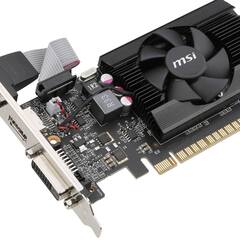-
Featured Topics
-
Topics
-
realfireguy ·
Posted in Graphics Cards3 -
AbyssSF ·
Posted in New Builds and Planning1 -
0
-
Nesy ·
Posted in Troubleshooting4 -
Ripred ·
Posted in Troubleshooting0 -
7
-
Ricardo Medina 00 ·
Posted in Peripherals1 -
2
-
3
-
1
-
-
play_circle_filled

Latest From ShortCircuit:
I tried 20 influencer foods, here are the best… and the worst…


.png.255947720031a641abdac78e663b681c.png)













Create an account or sign in to comment
You need to be a member in order to leave a comment
Create an account
Sign up for a new account in our community. It's easy!
Register a new accountSign in
Already have an account? Sign in here.
Sign In Now